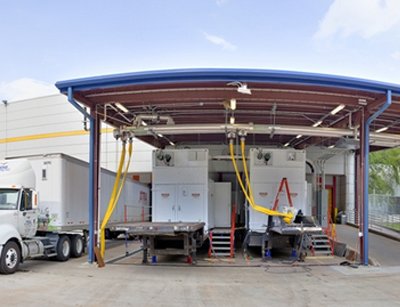More than a year after creating the first assembly line for modular data centers – HP POD Works – HP has released details on some of the customers that have relied on the speed of delivery to meet performance needs and reduce rollout cost.
Clients this year have been varied, but most are still going to the government and research sector.
HP rolled out PODS to the University of California in Los Angeles, US, The Australian Government’s Super Science Initiative iVEC and the City and County of El Paso, Texas, US as well as Skoda Power in the Czech Republic, a subsidiary of industrial facilities company Doosan.
HP has three models of POD, the 20c and 40c were designed for enterprise customers and have a PUE as low as 1.25 and are offered on a pay-as-you-grow basis. The HP POD 240a - HP’s EcoPOD - on the other hand, is built for more high performance operations with ten times the IT capacity of other units, and 88% faster deployment.
The Australian government AU$1.1bn Super Science Initiativ iVec, however, chose the HP POD 20c for its new supercomputing operation, used for research into radio astronomy, nanoscience and geoscience.
iVec executive director Andrew Rohl said: “HP’s POD technology will enable Australian research organizations to compete on the global stage as we further develop codes, techniques and best practices to significantly increase our compute capacity.”
The University of California in LA is also using HP PODs to extend its virtual High Performance Computing cluster to house 1,500 compute nodes, which in its case is saving it US$198,000 a year in power costs.
The City and County of El Paso in Texas designed its primary data center in a 40-foot HP POD using HP ProLiant BL460 servers. The result has been tax payer savings of almost US$6m according to the government, thanks to the consolidation of its IOT.
Meanwhile, Skoda Power used a 40,000 HP POD this year for computing performance and energy savings at Plzen, Czech Republic.
The POD deployed by SKODA is water cooled and requires 40% less power than other solutions, according to HP.

